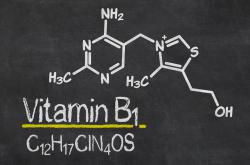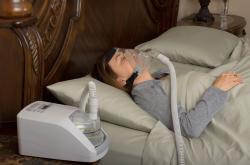Stimulants And Tiredness
What do stimulants do to the body and why should they be avoided by people who are suffering from chronic tiredness? What are the alternatives to stimulants?
What do stimulants do to the body?
There are a number of stimulants that are commonly used in society. In general, they have negative effects and this is particularly true for those of us who are trying to recover from long-term tiredness. These stimulants include:
Caffeine
Caffeine is present in coffee, tea and cola/soda type drinks as well as in some processed foods and prescription drugs. It has an extremely negative effect on the body for two main reasons. Although caffeine appears to stimulate alertness and energy, the effects are short-lived. Once the effects of caffeine have worn off, the person often feels more tired than ever, and takes another cup of coffee or cola drink to boost their energy. This creates a roller-coaster effect and a dependency on caffeine.
Another effect of caffeine is that it interferes with sleep. In particular, it disrupts the alpha brainwave pattern which is needed to relax and fall asleep. Without being able to get into this brainwave, we are left in beta brainwave, associated with concentration and anxiety. Quite often people fall into thinking about their problems, rather than relaxing, and this further delays sleep. As the effects of caffeine can be cumulative throughout the day, you may not be aware that this is why you can’t go to sleep and think that your problems are keeping you awake.
[For more information, please seeThe Stages and Cycles of SleepandCaffeine and Tiredness.]
Sugar
Refined sugar is often considered an anti-nutrient. It affects mood and behavior. It makes us feel good because it facilitates the release of serotonin in the brain which is why some depressed people crave sugar.
Sugar is found in a variety of foods, including: bagels, pies, candy, pasta, rice cakes, sodas, fruit juices, ketchup, jams etc. It is found in many processed foods, because it adds sweetness and appeal.
The problem with sugar is that it causes a vicious cycle of insulin release followed by the release of adrenaline and cortisol. Together these break down the muscles into sugar, which triggers the release of more insulin to store this sugar as fat. This roller coaster cycle exhausts the adrenal glands and causes weight gain, which taxes the body yet further.
Alcohol
Alcohol is a naked carbohydrate in an extremely refined form. It’s like sugar, only even more refined. Alcohol forces the body to make energy at a rapid rate. It creates a blood sugar roller-coaster that depletes the body of nutrients.
It affects sleeping patterns, too. Quite often someone will take alcohol in order to sleep. The blood sugar will spike, causing sleepiness and then drop during the night, waking them up. Poor sleep is a recipe for chronic exhaustion.
Alcohol is implicated in adrenal fatigue or hypoadrenia. There seem to be two kinds of alcoholism related to the adrenals:
- The need for quick energy (because it’s already depleted) may drive the craving for alcohol
- Alcohol consumption itself causes a person to become hypoadrenic.
As with many processes in the body, the alcohol/hypoadrenia cycle becomes vicious and the only way out of it is to give up alcohol.
Nicotine
Nicotine is a socially accepted (though being less so nowadays) form of stimulant. It’s highly addictive and difficult to quit. However, it’s not impossible and many people have successfully done so. Sometimes people need to give up more than once to achieve their goal. You may well need to enlist some support in doing this either from friends or a counselor. A useful tip is to sip water when you feel the craving for nicotine. This will reduce the desire and rehydrate your body at the same time, making you feel better.
If you are using nicotine in the form of cigarettes, pipes, cigars or nicotine patches, then consider the effects the substance has on your body. It causes not only lung cancer, but affects the circulation systems of the body. In some cases, smoking may lead to the amputation of a limb. The additives in tobacco are also poisonous to the whole system.
Herbal stimulants
Just because something is labeled ‘herbal’ doesn’t mean that it is healthy. There are several herbal stimulants that should be avoided by anyone who is suffering from tiredness. They include ephedra and ma huang. Frequently taken by those who want to lose weight fast, they mimic the effect of adrenaline – making the heart work faster and pumping more blood to the muscles. People who ingest these stimulants often feel euphoric for a while but this doesn’t last. Their thoughts become jumbled up; their hearts pound and their nerves become jittery. Other symptoms include: nausea and vomiting, anxiety feelings and panic attacks. Even worse, this constant stimulation has a negative effect on the adrenal glands, and the net result is exhaustion.
In general, herbal stimulants have a negative effect on health and should be avoided by anyone who is suffering from chronic tiredness.
What are the alternatives to stimulants?
The alternatives to stimulants involve lifestyle changes. One of the reasons we rely on stimulants is that we are stressed by the pace of life in the 21st century. Reducing stress, cutting out non-essentials and downsizing financial commitments all play a role here.
It’s important to create healthy habits such as rest, relaxation, good nutrition and proper sleep. Although these are longer term solutions to the issues of energy, they will pay excellent dividends in terms of creating vibrant health and energy.






.jpg)



Leave a comment